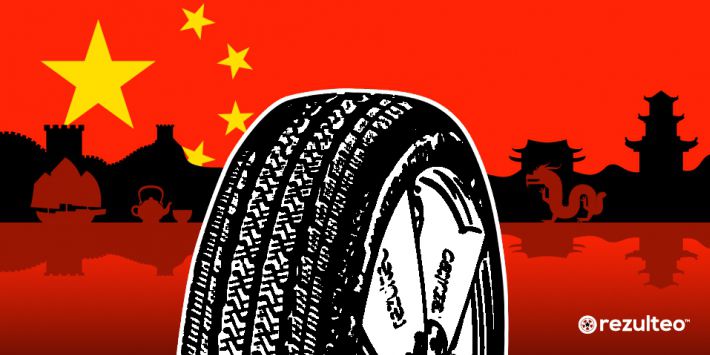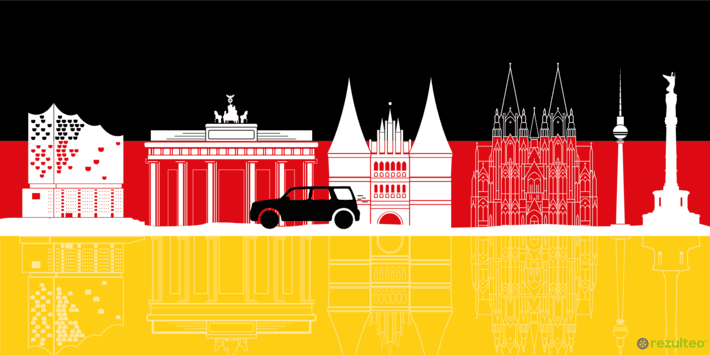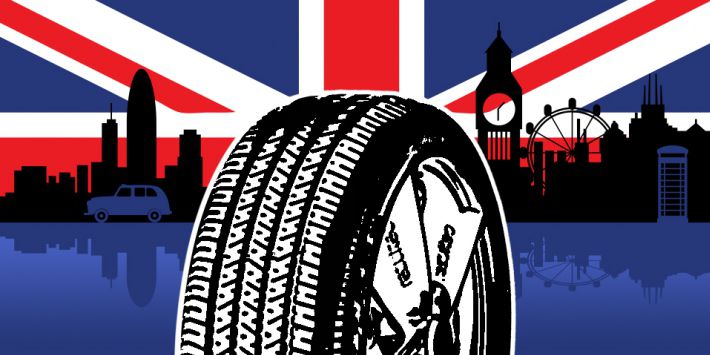In this article, rezulteo proposes an overview of the main car manufacturer groups, as well the specific tyre markings for some of them.
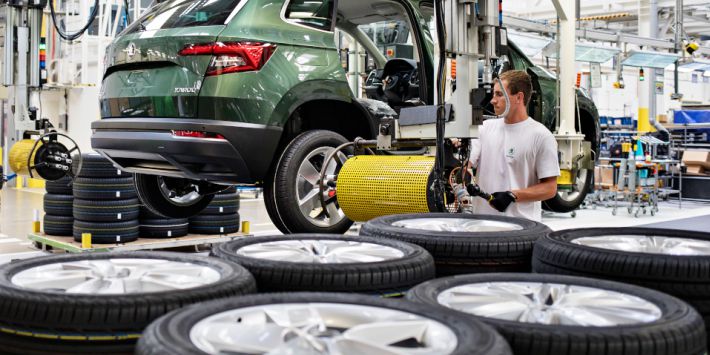
Volkswagen Group
The Volkswagen group is one of the largest car manufacturers in the world. It employs more than 600,000 people throughout the world with a turnover of 230 billion Euros in 2017. The group owns 12 different brands: Volkswagen, Audi, Seat, Skoda, Bentley, Bugatti, Lamborghini, Porsche, Ducati, Volkswagen Nutzfahrzeuge (Light Commercial Vehicles), Scania and MAN. Only passenger car brands will be presented here.
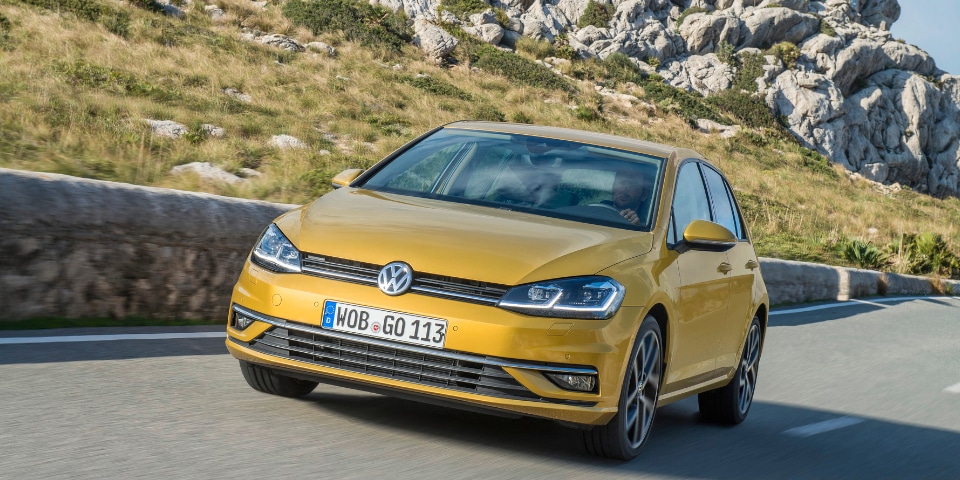
Volkswagen
Founded in 1937 at Wolfsburg, today the Volkswagen brand is one of the most popular car brands in the world with 6.23 million vehicles sold in 2017. Volkswagen produces all types of vehicles, from the up! or Polo city cars to the Tiguan or Touareg SUVs, not forgetting the Golf, the invincible compact car. There are tyres specifically approved for Volkswagen vehicles. These tyres have the VO or VOLKSWAGEN original equipment markings.
Audi
Created in 1909 by August Horch at Ingolstadt, Germany, Audi has been part of the Volkswagen group since 1964. Today, the four rings brand is one of the leading luxury car manufacturers with more than 1.8 million models sold in 2017. Audi currently produces several models of SUV vehicles, city cars, passenger cars, estates and other sports coupes. Audi has several OE markings, depending on the different models: AOE, RO1, AO1, AUDI, RO2, AO2, RO3 or AO.
Seat
The Société Espagnole des Automobiles de Tourisme, better known as SEAT was founded in 1950 following the decision of the Spanish government to develop the domestic car market with the help of Fiat. It was only in 1986 that SEAT joined the Volkswagen group. The Spanish car manufacturer produced more than 450,000 passenger cars in 2017 in segments ranging from city cars such as the Mii or Ibiza to the Arona and Ateca SUVs, the Alhambra people carrier, not forgetting the famous Leon compact car and its very popular sports versions. Since 2018, the sports division of SEAT, Cupra has become a brand in its own right.
Škoda
Škoda is one of the oldest car manufacturers in the world, having been founded in 1895 in the Czech Republic, in the town of Mladá Boleslav. But it was only in 1919 that the car division came into being. Owned by the Volkswagen group since 1991, Škoda sold 1.3 million vehicles in 2018 in the SUV, MPV, city, compact, family, and passenger car segments. If the brand is very popular in Europe being, among other things, a major partner of the Tour de France for more than 15 years, Škoda is also increasingly recognised in emerging markets. In China for example, its Kodiaq GT SUV coupe has attracted several new customers.
Bugatti
Created in 1909 at Molsheim, in the Bas Rhin region, the French car manufacturer has never been like the others. Its slogan “Nothing is too beautiful and nothing is too expensive”, could have been completed with “nothing is too fast”. For more than 100 years, Bugatti stands for sports cars that beat all speed records. Presented at the 2019 Geneva International Motor Show, the special edition “Black Car” was a sold for the price of 11 million Euros, before tax. Its quad turbo W16 8.0 litre engine with 1,500 horsepower allows it to reach a top speed of 420 km/h and could go even faster if only more resistant tyres allowed it. There are 500 models of the Bugatti Chiron which have the same characteristics. The price of tyres for the Bugatti Chiron? Slightly less than 40,000€ according to the French car manufacturer who sends its own technicians to fit them.
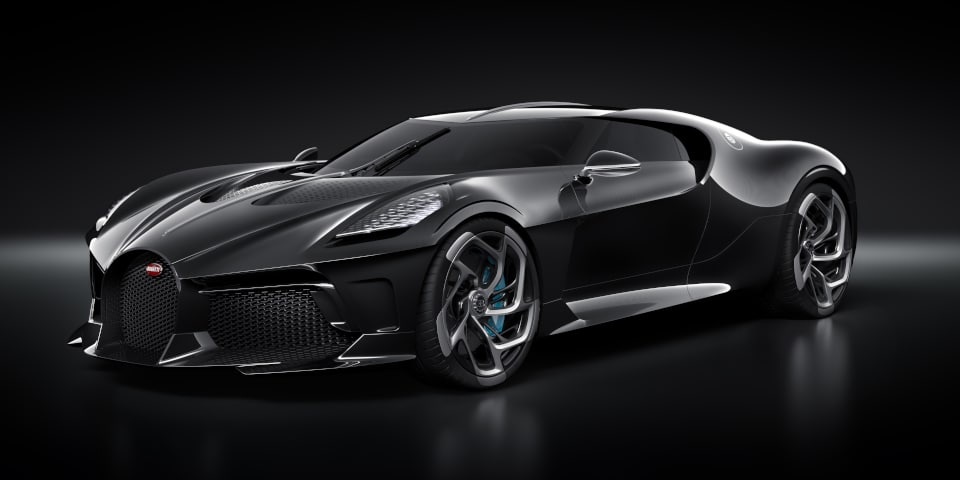
Lamborghini
Today, Lamborghini is one the largest car manufacturers of luxury sports cars. But the brand founded in the outskirts of Bologna in 1963 by Ferruccio Lamborghini first made his fortune in the production of agricultural tractors. An integral part of the Volkswagen group since 1998, Lamborghini produced 6,333 vehicles in 2018 such as the Urus SUV or the Huracán. Tyres like the P Zero Corsa are available as original equipment for Lamborghini vehicles. These tyres have the “L” symbol marked on their sidewall to show it is approved by the Italian brand.
Bentley
Known for its luxury and racing cars, Bentley was founded in 1919 by Walter Owen Bentley at Cricklewood, in the north of London. Following financial difficulties encountered during the Great Depression, the car brand was absorbed by Rolls-Royce in 1931. Bought by the Volkswagen group in 1998, Bentley sold almost 10,500 vehicles throughout the world in 2018, including its Continental, Mulsanne and FlyingSpur flagship models. Tyres approved for vehicles from the high-end British brand have the B, BC, BL, BL1 and B1 markings.
Porsche
The brand was founded in 1947 by Ferry and Louise Porsche, the children of the brilliant engineer Ferdinand Porsche, inventor of the iconic Volkswagen Beetle. The first Porsche 356 sports car was developed on the basis of the Beetle. Since 2011 the brand is an integral part of Europe’s largest car manufacturer, the Volkswagen group. Originally a family company, Porsche has become one of the world’s largest car manufacturers, with more than 250,000 vehicles sold in 2018. This prestigious brand is illustrated through its vast range of cars: 911, Cayenne, Macan, Boxster, Panamera… Tyres approved for Porsche have a special marking ranging from N0 to N6 or NA0, NF0, PORSCHE.
PSA Group
Created in 1976, the PSA Group (Peugeot Société Anonyme) is a French car manufacturer which owns the Peugeot, Citroën, DS Automobiles as well as the Opel and Vauxhall brands. Second largest European car manufacturer, the group sold almost 4 million vehicles throughout the world in 2018.
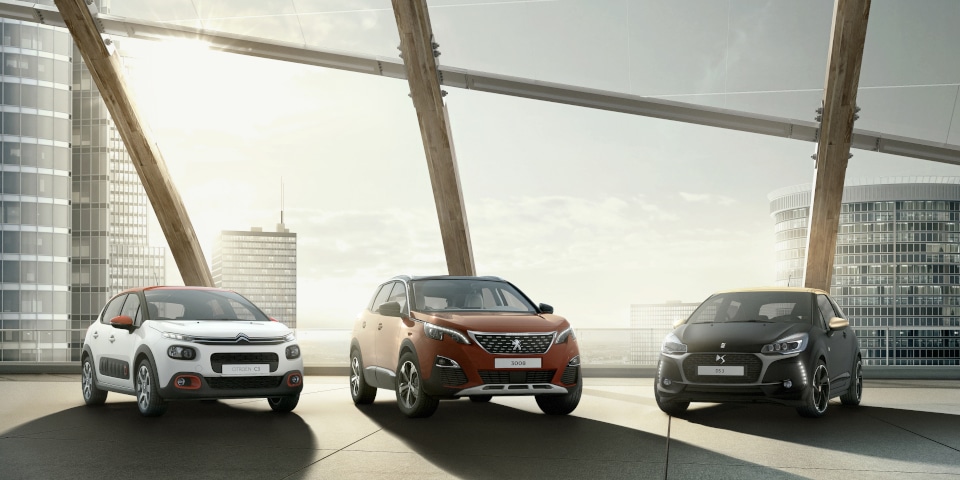
Peugeot
One of the pioneers in the automotive world, Peugeot was founded in 1810 at Sochaux. Its flagship car, the Peugeot 206 is one of the best selling vehicles of all times, with more than 7 million units produced. Present in almost 160 countries, it is the only brand in the world to propose a complete mobility offer: cars, scooters, bicycles. The SI marking can be found on the sidewalls of tyres approved by Peugeot.
Citroën
Since its creation in 1919 by André Citroën, the chevrons brand has revolutionised the car industry world with its cutting edge technologies. The Citroën company was taken over by Michelin in 1934, then by the PSA group in 1976. The French car manufacturer produces several types of city cars, passenger cars, SUVs, MPVs with more than 1 million models sold in 2018. Tyres approved by Citroën are also marked with the SI symbol.
DS Automobiles
Originally, the DS line was Citroën’s top end product line with three models: DS3 city car, DS4 compact and the DS5 crossover. In 2014, DS became an independent brand. Its name pays tribute to the Citroën DS, the former top of the range model sold between 1955 and 1975. The French brand has been very successful in Asia, particularly with the DS6, its first premium SUV produced in China.
Opel
Opel is a German car manufacturer founded at the end of the 18th century by Adam Opel at Rüsselsheim, Germany. After belonging to the General Motors group for almost a century, the company has been part of the PSA group since 2017. The lightning brand is present in more than 60 countries worldwide with more than 1 million vehicles sold in 2018. Tyres approved by Opel have the OP or OP1 marking.
Vauxhall
Created in 1857 at London, Vauxhall is Opel’s sister company. Most of its current models such as the Astra or the Corsa are based on the German brand, adapted for the British market and roads with, in particular, a right hand drive.
FCA (Fiat Chrysler Automobiles) Group
Established in 2014 following Fiat’s takeover of the Chrysler group, the FCA group includes the Fiat, Alfa Romeo, Lancia, Abarth, Maserati, Chrysler, Dodge, Jeep and Ram brands.
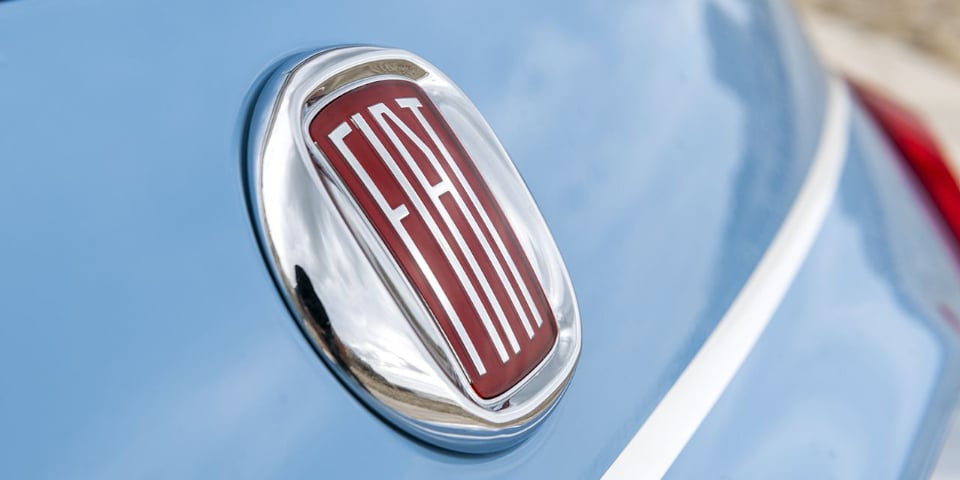
Fiat
Fiat or Fabrique italienne d’automobiles de Turin was founded in 1899 by thirty shareholders with the ambition to “democratise mobility”. With more than 1.3 million units sold throughout the world each year, the Italian brand mainly focuses on the mini, small and medium sized vehicle segments. The Fiat 500 is one of its most popular models. Launched in 1957, the iconic 500 is now sold in more than 100 countries.
Alfa Romeo
Known for its sporty vehicles, the history of the Italian brand started at Milan in 1910 with the creation of ALFA, an acronym for “Anonima Lombarda Fabbrica Automobili” (“Anonymous .Lombard Automobile Factory”). It changed its name to Alfa Romeo after the company was taken over by Nicola Romeo, a Neapolitan engineer. In 1986, the brand was bought by its Italian competitor, Fiat. Alfa Romeo’s slogan “Driven by passion” is today embodied by its Giulietta, Giulia, 4C or Stelvio models. As original equipment, they are fitted with tyres bearing the AR or ARR marking.
Lancia
Lancia was founded in 1906 in Turin by Vincenzo Lancia. Since 2017 the brand is solely active on the Italian market and currently only produces one model: the Ypsilon. The LZ marking shows that the tyres are approved by Lancia.
Abarth
Abarth was founded after the Second World War by Carlo Abarth as a company to prepare cars for racing. Abarth is mainly based on Fiat cars to transform them into models capable of breaking track records. Originally, the brand owed its success to tuning kits for the Fiat 600.
Maserati
This brand specialised in luxury, sports and racing cars was founded by the Maserati brothers in 1914. In recent years, following an ambitious strategy aiming to expand the product range for the luxury SUV and high performance car segments, the Trident brand has undergone a significant transformation resulting in an exceptional growth, with 51,500 vehicles sold in 2017. Tyres such as the Pirelli P Zero with the MGT marking are available as original equipment for Maserati. The Italian tyre manufacturer is a long-standing partner of Maserati for both motorsports and series production vehicles.
Chrysler
The first car from the Chrysler brand was produced in 1924 by Walter Percy in New York. It was Chrysler who invented the minivan concept in the 1980s, creating a completely new segment which changed the history of family transport. Since it was bought by Fiat in 2009, the American brand is no longer sold in Europe, except in the UK and Ireland. Today the Chrysler brand is mainly focused on minivan and full-size car segments in North America. Tyres approved by the American brand exist, and can be recognised by the C1 marking.
Dodge
Founded in 1914, Dodge produces bold and aggressive cars offering a wide range of engine performance options. Before their own brand was founded, the Dodge brothers helped Henry Ford finance his company and as such, became the first shareholders of the Ford Motor Company. Now, the Dodge brand is part of the FCA group and is no longer sold in Europe.
Jeep
Founded in 1941, the Jeep brand is recognised throughout the world for its SUVs and its outstanding off-road abilities. Originally, Jeep supplied the American army with 4×4 all-terrain vehicles during the second World War. The American brand started to produce cars for the civilian market in 1945. Present in more than 140 countries, Jeep sold around 1.4 million units worldwide in 2017.
Ram
Ram is an American brand specialised in light trucks. Part of the Dodge Ram pick-ups range, it became a brand in its own right in 2009. The Ram SRT-10 pick-up was certified as being the world’s fastest production truck by the Guinness Book of Records. Today, Ram vehicles are only sold in North America.
Renault Nissan Mitsubishi
The Renault-Nissan-Mitsubishi alliance was formed in 1999 following the financial difficulties of Nissan which was partially bought by Renault. The strategic partnership was strengthened in 2016 with the arrival of Mitsubishi. Today, the automobile empire now controls 10 brands: Renault, Nissan, Mitsubishi, Dacia, Renault-Samsung, Lada, Alpine, Infiniti, Venucia, and Datsun. The Alliance became number one in the automobile sector with 10.6 million cars and light commercial vehicles sold in 2017. With 450,000 employees, the Renault-Nissan-Mitsubishi alliance sells 1 in 9 vehicles throughout the world.
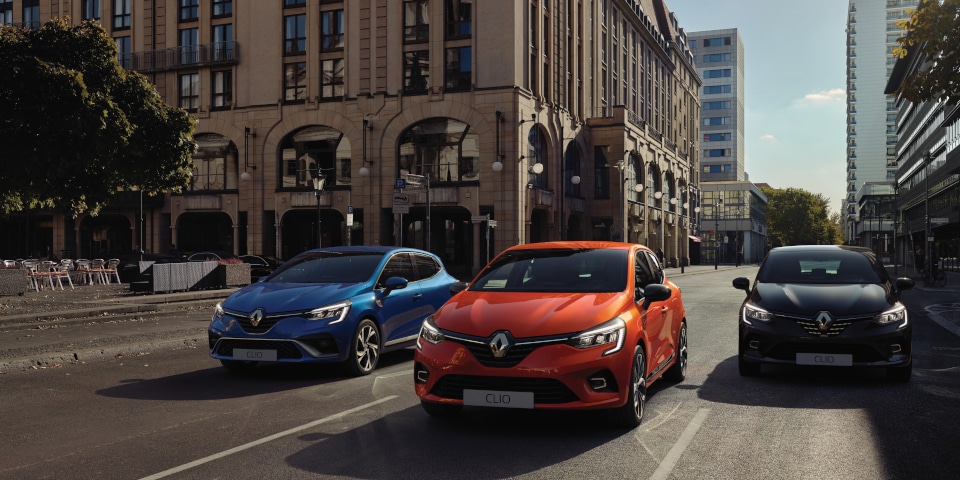
Renault
Car manufacturer since 1898, today Renault is the first French brand in the world with more than 2.5 million vehicles sold in 2018. Founded by the Renault brothers, the brand is now part of an international group with the same name. Renault proposes more than 30 ranges of cars, including some best-sellers such as the Clio city car and the Captur SUV. Original equipment tyres have the RE marking.
Nissan
Before becoming Nissan, the Japanese car manufacturer was known as Datsun. The current name was finally adopted in 1934. Despite its previous success in the automotive industry, the company found itself on the verge of bankruptcy at the end of the 1990s. This is the reason why the alliance with the French group Renault was concluded in 1999. Following this merger, several successful models have been produced such as the Nissan Micra, the Qashqai and the Nissan Note.
Mitsubishi
The Japanese car company Mitsubishi Motors was founded in 1970. The brand primarily specialises in SUVs, mainly produced for the worldwide market, and mini-cars for the Japanese market. Present in 14 countries, Mitsubishi sold more than one million vehicles in 2017.
Dacia
Dacia is a Romanian car manufacturer founded in 1966. Its name comes from “Dacie”, the territory of its Romanian ancestors. Bought by the Renault group in 1999, Dacia proposes 5 vehicle ranges, including the brand’s best sellers, the Duster, Logan and Sandero. The vehicles are sold under the Dacia brand in Europe, and under the Renault brand in the rest of the world.
Renault-Samsung
Renault-Samsung is a South Korean car manufacturer established in 1995 under the name Samsung Motors. Since the company was taken over by Renault, the vehicles are sold under both brands: Samsung in Korea and in Chile, and Renault in other countries. In 2018, Renault-Samsung sold almost 85,000 cars.
Lada
Lada, initially named AVTOVAZ, is the first Russian car manufacturer founded in 1966 at Togliatti. An integral part of the Renault group since 2017, today its vehicles are sold in 30 countries. Almost 2.5 million units of its 4×4 model, known as the Lada Niva, have been produced.
Alpine
Owned by the Renault group, Alpine is a French car manufacturer established in 1955 by Jean Rédélé at Dieppe, in Normandy. The brand’s name comes from several wins of its founder, a motorsport enthusiast, in major events in the Alps. Thanks to its iconic model, the A110, Alpine became one of the most successful teams in motorsports. 22 years after it disappeared, the brand relaunched the production of its berlinette in 2017.
Infiniti
Infiniti is the luxury vehicle subsidiary of Nissan launched in 1989. Initially the brand was sold in the United States, but in 2008 the brand arrived on the European market. Today, Infiniti proposes 15 models of vehicles in the SUV and luxury saloon car segments.
Venucia
Launched in 2010, Venucia is a Chinese car brand controlled by Nissan and the Dongfeng Motor Corporation. The brand sells entry level vehicles for the Chinese market.
Datsun
Datsun dates back to the early days of Japanese car manufacturing. In 1981, after having sold 20 million cars in 190 countries worldwide, the Datsun brand was gradually phased out. It is now Nissan’s name which is used to develop the company on a worldwide scale. Datsun was relaunched in 2013 and became the low-cost brand of Nissan.
Toyota
The Japanese group Toyota, comprising the Toyota, Lexus, Daihatsu, Subaru and Hino (production of trucks and buses) brands is one of the largest car manufacturers in the world. Toyota dominated the world market from 2008 to 2015, by becoming the first group to sell more than 10 million vehicles worldwide in 2014.
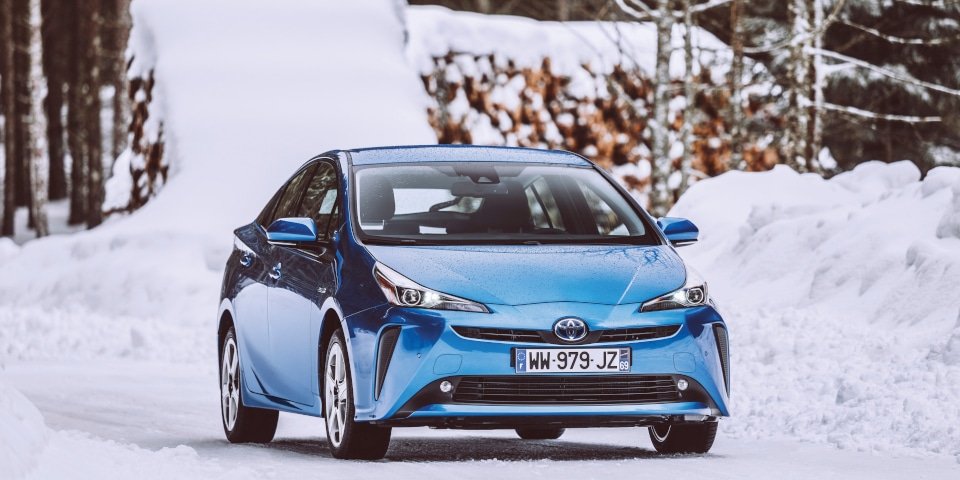
Toyota
Toyota was founded in 1937 by Kiichiro Toyoda from the sale of the patent for the automated loom invented by his father. The manufacturer of the Yaris city car and the Prius hybrid car is behind the Toyota production system which gave rise to toyotism. The principle consists in only producing sufficient quantities based on existing orders with minimum losses. Today, Toyota vehicles are sold in more than 160 countries. Tyres approved by the Japanese brand have an A marking.
Lexus
Lexus is Toyota’s luxury car division launched in 1989. The first car sold by the Japanese brand was the Lexus LS400. After 30 years of existence, Lexus has produced 10,000,000 vehicles including 1,450,000 rechargeable hybrids. It is also the first top-end car manufacturer to propose hybrid versions of its products.
Daihatsu
An integral part of the Toyota group, Daihatsu is specialised in the production of kei jidōsha, small cars sold in Japan which benefit from various advantages, and in particular, reduced taxes and insurance premiums. Founded in 1907, it is the oldest Japanese car manufacturer.
Subaru
Established in 1953, Subaru is a Japanese car manufacturer. It is the first manufacturer to launch a four wheel drive passenger car on the market. As such, Subaru is considered as being the pioneer of the four wheel drive technique for passenger cars with more than 18 million vehicles sold worldwide. In Europe, the brand is mainly known for its current flagship model, the Impreza. Tyres approved by Subaru have the LV or SUBARU marking.
BMW Group
The BMW group, known for its high-end vehicles, owns the BMW, Mini and Rolls-Royce brands. Based at Munich, Germany, the group sold almost 2.5 million vehicles in 2018 with a turnover of 97.5 billion euros.
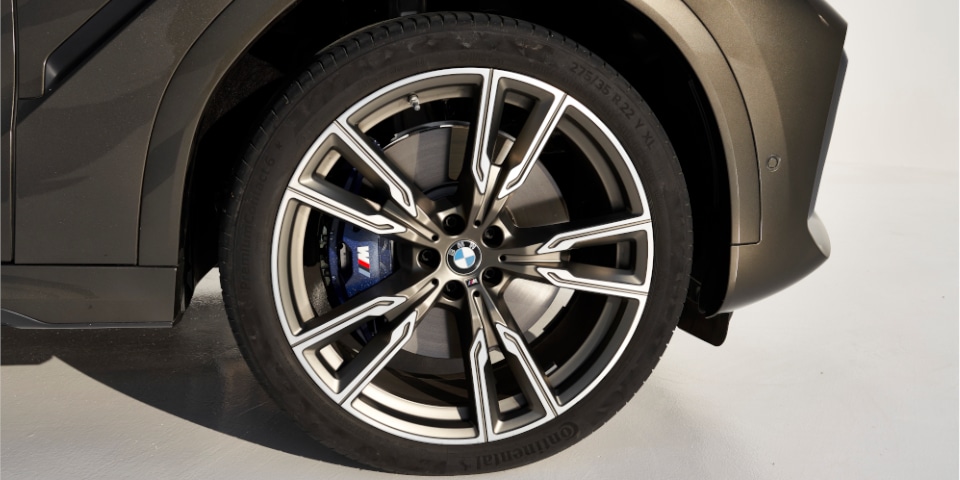
BMW
BMW or Bayerische MotorenWerke meaning “Bavarian Motor Works” was founded in 1916 in Munich. Originally, the propeller brand produced aircraft engines and was not a car manufacturer. After the first world war BMW was forced to convert to car manufacturing following the Treaty of Versailles which banned Germany from producing aircraft. Today, the brand is known worldwide for its sporty, high-end cars. Tyres approved by BMW can be identified by the star moulded in their sidewall, or by the BMW and M3 marking.
Alpina
Alpina produces small volumes of high-performance cars based on BMW models. The brand was founded in the 1960s thanks to Burkard Bovensiepen who developed a tuning kit for his BMW vehicle. Recognised by the German car manufacturer, who committed to awarding the full factory guarantee to its modified vehicles, it was only in 1983 that Alpina became a car manufacturer in its own right. Over the last few years, it has sold more than 1,500 cars annually. Tyres approved by Alpina have the ALP marking.
MINI
Founded in 1959; MINI is a British car manufacturer which belongs to the BMW group. The brand was designed to compete against contemporary flagship cars, the Beetle and the Fiat 500. Today, MINI sells 6 vehicle models, including the legendary Cooper city car, and the Countryman SUV.
Rolls-Royce
Rolls-Royce was established at the start of the 1900s following a meeting between the engineer Henry Royce and the aristocrat Charles Rolls, who had a keen interest in engines. Since its creation, Rolls-Royce has become the most prestigious British car brand through its models: Silver, Ghost, Phantom, Wraith, etc. An unequalled quality means that today, more than 60% of the Rolls-Royce cars built are still running.
Daimler
Daimler is one of the largest manufacturers of high-end cars and the largest truck manufacturer in the world. Based at Stuttgart, Germany, the group sells vehicles under the Mercedes-Benz, Smart and Maybach brands. With almost 300,000 employees, Daimler recorded a turnover of 167 million euros in 2018.
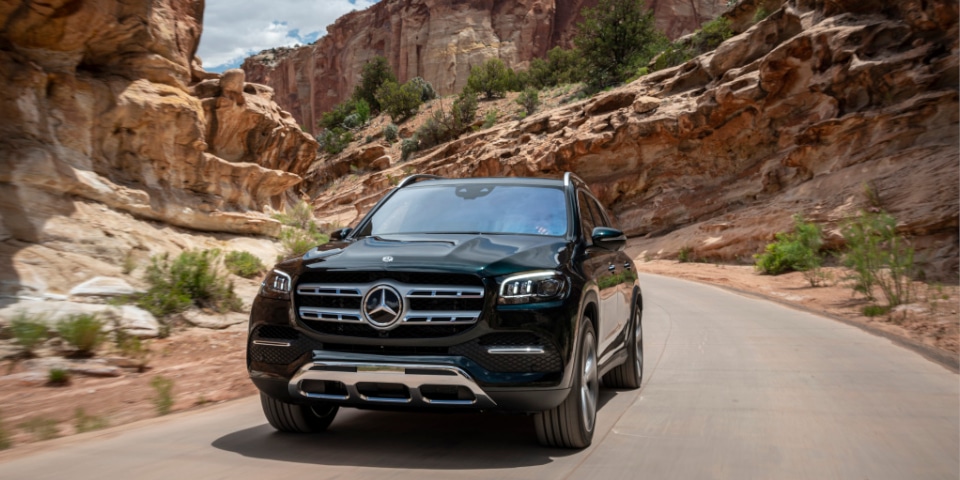
Mercedes-Benz
Mercedes-Benz is a German car brand, the Daimler group’s subsidiary for luxury vehicles. In 2018, Mercedes-Benz reached an all time record for its worldwide sales with more than 2 million cars sold. The most popular models are SUVs and compact cars. Various tyre models are approved for Mercedes vehicles and have the marking MOE, MO-V, MO or MO1.
Smart
Established in 1994, Smart specialises in the production of two-seater micro cars or city cars. This brand is the result of a partnership between Mercedes-Benz and Swatch, the Swiss watch maker. The Smart Fortwo flagship model, that can go anywhere, is only 2.7 metres long.
Maybach
Specialised in ultra-luxury cars, Maybach is a German car manufacturer. In particular, it made an impression with the Maybach Exelero, a concept car produced in partnership with the tyre manufacturer Fulda who needed to test its new high performance tyres. The 6 metre long vehicle was sold for the modest sum of 8 million dollars.
General Motors
Formerly the largest car manufacturer, General Motors was founded in 1908 in the United States. Today the American group has 8 car brands in its portfolio: Chevrolet, Buick, GMC, Cadillac, Holden, Baojun, Wuling and Jiefang. Preferring to focus on more profitable markets, General Motors is no longer present in Europe.
Jaguar Land Rover
Jaguar Land Rover is a British car manufacturer founded in 2008 when Tata Motors bought Jaguar and Land Rover from Ford. The company is based at Coventry, in England.
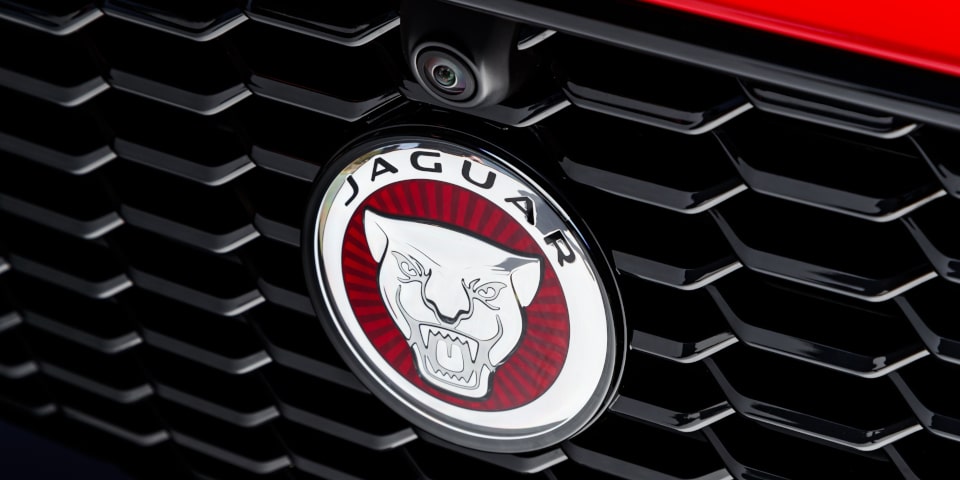
Jaguar
Before bearing the name Jaguar, the company founded in 1922 was called Swallow Sidecar Company or SSC. The name Jaguar was adopted after the second World War to avoid any confusion with the German SS. From 1989 to 2008, the brand belonged to the American car manufacturer Ford. For the general public, the ultimate Jaguar remains the Jaguar XJ. Despite the fact that the brand still symbolises British luxury, nowadays Jaguar produces more “general public” vehicles. Tyres approved for the cat brand are marked with the letters J or JRS.
Land Rover
Shortly after the Second World War, the British car manufacturer Rover launched a new Land vehicle. It was a 4×4, perfectly at ease on all terrains, greatly inspired by the Jeep. Later, Land Rover became a brand in its own right. It produced 4×4 models, some of which have become legendary such as the Defender, the Range Rover or the Discovery. Depending on the model, tyres approved by Land Rover can have different markings: LR, LR1, LRO, LRO1.
Aston Martin / Prodrive
Prodrive is a company specialised in the preparation of cars and motorsports. In partnership with the luxury car manufacturer Aston Martin, they created a racing team, Aston Martin Racing. In 2007, Prodrive bought Aston Martin from American car manufacturer Ford.
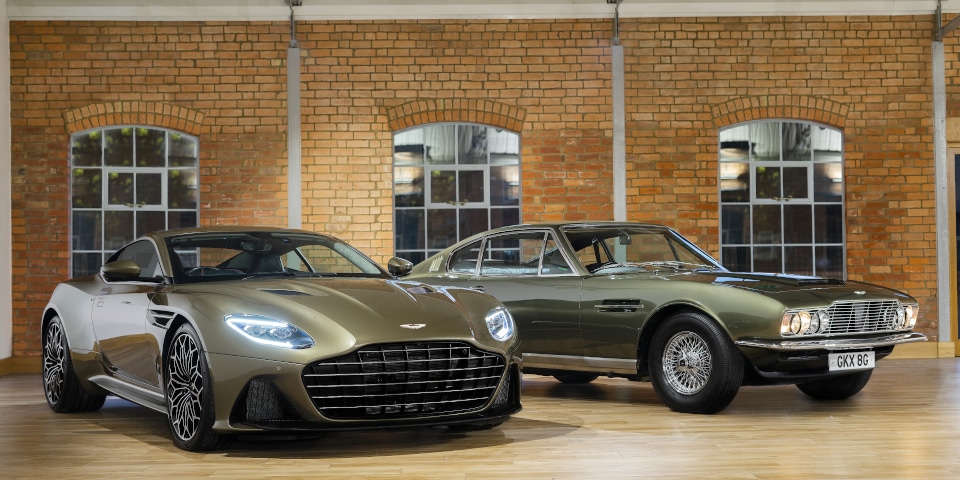
Aston Martin
Prestigious British sports car brand, Aston Martin built its first vehicle in 1913 to compete against Bugatti. In 1922, the Bunny model managed to drive for 16 hours and 30 minutes at an average speed of 77 mph, setting a new world record. But the British brand became known to the general public mainly through James Bond movies, since it is the 007 agent’s favourite car. Several markings exist to show that tyres are approved by Aston Martin: AMX, AMR, AML, AM2, AM6, AM4, AMP, AMS, A6A, AM5, AM9, AM8, AMV
Ferrari
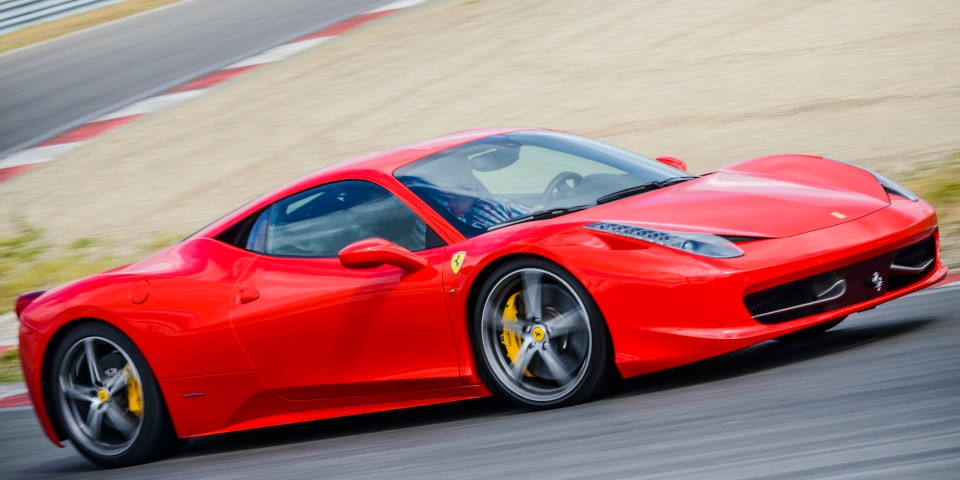
The legendary Italian car brand, Ferrari was founded in 1947 by Enzo Ferrari, who was originally a test driver for Alfa Romeo. The prancing horse brand has become a reference in the automobile world, in both motorsports and in the premium sports car segment. Most of them are recognised by their colour, red. Since Ferrari was initially established as a racing team, at that time there was colour code to help distinguish between sports cars during international races. Red was reserved for the Italians. In 2018, the famous brand sold more than 9,000 vehicles with a turnover of 787 million Euros. Tyres approved by the Italian car manufacturer, for example Pirelli P Zero, are marked with the symbols K2, K3, K1, F01, F, F03 or F02.
Ford
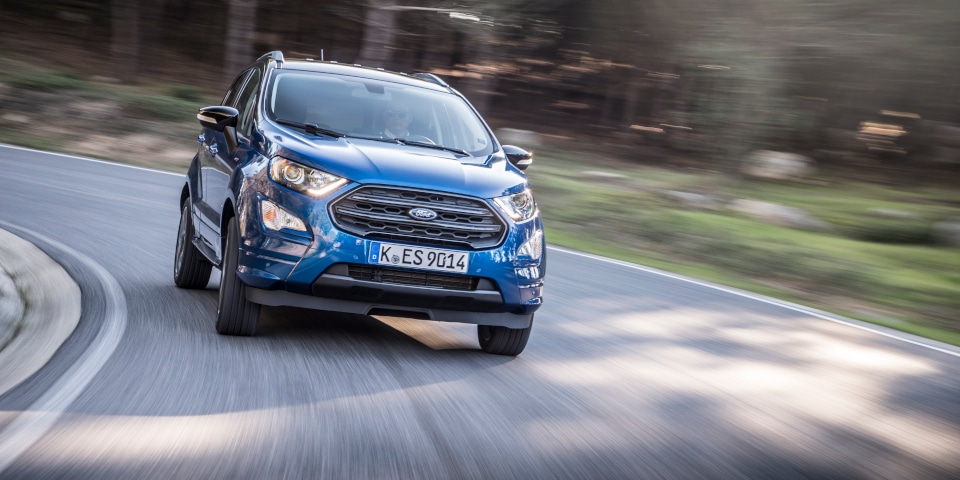
The first Ford car appeared in 1903, but the American car manufacturer met with real success following the launch of the Ford T in 1908. This vehicle revolutionised the industrial world since the demand exceeding the supply obliged Henry Ford, the brand’s founder, to find a solution to produce more. It was in these circumstances that Fordism was born. Today, Ford is particularly appreciated in Europe for its SUVs, such as the Kuga or EcoSport. Tyres approved by the American brand have the markings FO2, FO1, FO.
McLaren
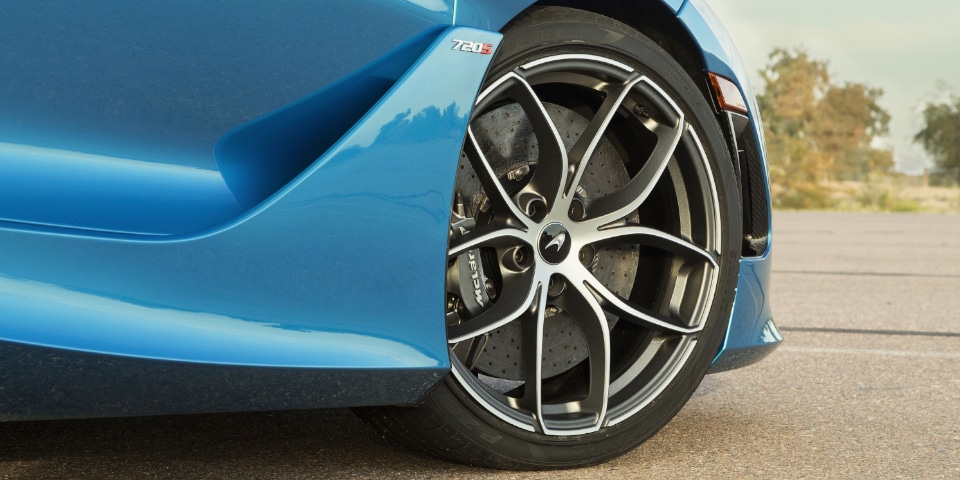
For sports car enthusiasts, the British brand is one of the most legendary. It is mainly known for its many wins in Formula 1. In addition to developing racing cars, since 1989, McLaren produces “general public” vehicles while remaining in the prestige segment. To equip their vehicles, approved tyres have the MC or MC1 marking on their sidewall.


